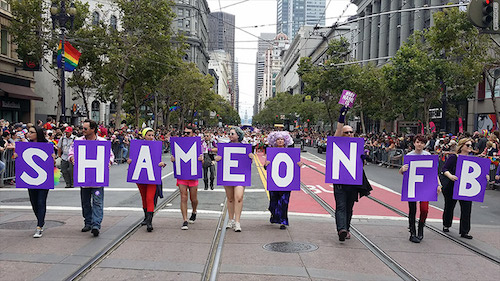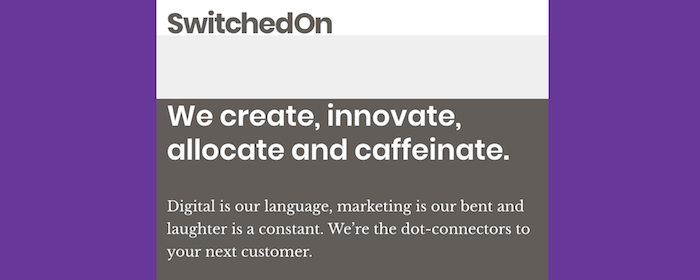In the wake of the Facebook debacle and with fewer people posting everything and everyone checking their social media feeds less often, is it time to stop thinking of social media as a reach and engagement wunderkind?
That’s not the kind of question you ask the social media and creative director of digital agency, Switched On, politely. But The Stable did so anyway.
Here’s what Yash Murthy replied:
Earnings calls, stories struggles and privacy pitfalls: are the days of social as a media wunderkind numbered?
We all saw the headlines last week after Facebook’s Q2 earnings call – “Record stock wipeout”, “Facebook loses $120 billion”, “Zuckerberg at Centrelink”. Twitter’s share price dropped 21% after similar news, and just today, Snapchat announced its first ever drop in users.
So is this just a blip or is social media’s reckoning nigh?
You don’t make 2.23 billion friends without making a few enemies
After years of record growth, IPOs and stock surges, the news has taken a turn of late. Stories over the past year or so around privacy, data misuse and ‘fake news’ headline the critical existential, legal and commercial issues that face the industry.
For the likes of Facebook and YouTube, critics feel institutional levels of success and adoption should bring with it the baggage and responsibilities of an institution. Flipping this paradigm on its head, are brands and marketers responsible for continuing the growth of a platform that enables the scandals we’ve borne witness to?
These are tough questions with no easy answers – and many would argue that the failure to properly address them that has finally come home to roost. One might even look at these results to say the horse has already bolted the Pizzagate.
Look on my works, ye mighty, and despair?
While Facebook isn’t giving up the ghost any time soon, remember that nothing is ever too big to fail. History is littered with cautionary tales of impregnable monoliths that have fallen by the wayside. MySpace went from having more web traffic than Google in 2006 to becoming a ubiquitous punchline at Silicon Valley parties pretty damn quickly.
In Zuckerberg’s own words, Facebook is adopting a “long term view”, headlined by investment in AI and security. Instagram and Whatsapp’s growing value has shown that Facebook’s acquisition strategy has also done a solid job of insuring them against both the flight of young people from Facebook, as well as owning the “dark social” space for those preferring the private and personal aspect of social connection.
We also forget that since the Cambridge Analytica scandal, Facebook’s value is up 40%. It’s going to make $33 billion in ad revenue this year. Twitter’s earnings are up and Snap’s stocks actually rose after today’s announcement as a result of reduced losses. The world we live in is enabled by social media’s digital water coolers and online communities, the need for which is only increasing as our daily interactions continue to migrate to the bezels in our hands – in June alone, 2.5 billion people used a Facebook-owned app.
So while Zuckerberg has the profile and trappings to be social media’s Ozymandias, at this stage it would require a lot of dominoes to fall before we see his shattered visage sunken in the sand.
“We Sell Ads, Sir”
As the above indicates, despite espousing personal connection in recent marketing pushes, the reality is promoted content will always be the bedrock of the platform’s growth. And the realisation is dawning on both platforms and marketers alike that as networks reaches a critical mass, there simply isn’t any more real-estate in the newsfeed. Facebook Ad prices rocketing up 17% highlights this (as well as Facebook’s continued pulling power one must also say).
As such, the pathways to the crazy 40-50% growth numbers aren’t really there any more. The Stories product is the headline offering, but Snapchat has struggled to commercialise this since day one. Facebook and Instagram are now facing this same reality, reflected in the product’s low CPMs to date.
The pinch of GDPR is another significant fiscal speed bump. Some of the world’s biggest marketers harvested 3rd party data to great effect. The commercial ramifications of removing that layer of sophistication are yet to be fully measured, but safe to say spends have and will shift as efficiencies decline.
On the positive side, there has been a significant development since the earnings call. The announcement of the soon-to-launch “click to Whatsapp” ad unit, along with the Whatsapp Business API, is the first major sign of Facebook looking to tap into Whatsapp’s significant user base to collectively drive ecosystem growth. It certainly has all the makings of a huge revenue stream if done correctly.
So I guess this is growing up
In response to these challenges, the platforms are all committing to a re-emphasis on user experience, product development and privacy – as they should. All of which should ensure that social won’t be relinquishing its grip on our thumbs and eyeballs for a while yet.
The upshot for marketers? Factoring in this pivot in priorities, as well as the aforementioned price rises, there’s no doubt that the margins between success and failure are tighter than ever before.
Simply “being on social” is no longer a panacea for bad marketing – its days as a reach and engagement silver bullet are well and truly over. It must be stressed however, that the opportunities still abound for brands that devote the time to understanding their audience and commit to a true value exchange.
Our wunderkind’s growing up before our eyes – let’s hope we’ll all look back on this as just an awkward phase.



















